Nepal earthquake: Return to the valley of tears
- Published
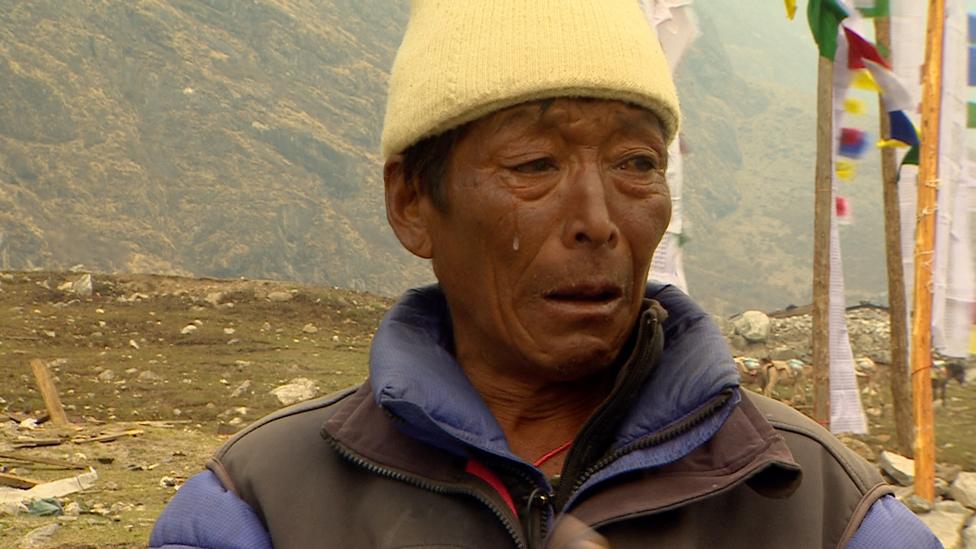
A year ago, nearly 9,000 people died and more than 20,000 were injured when an earthquake struck Nepal. Justin Rowlatt was the first journalist to reach the village of Langtang after the quake - now he's been back.
It is easy to understand why Langtang is such a popular destination for trekkers. The valley is breathtakingly beautiful. The crashing river that carved it out snakes through the high Himalayas, a pine forest on either side.
But I was anxious as I flew back in a small helicopter a few days ago. The last time I had been here I had found a community in terrible trauma.
The main town, also called Langtang, had been utterly destroyed. The scale of the devastation was so complete it was hard to work it out when flying over it.

Langtang village in September 2014 before the earthquake

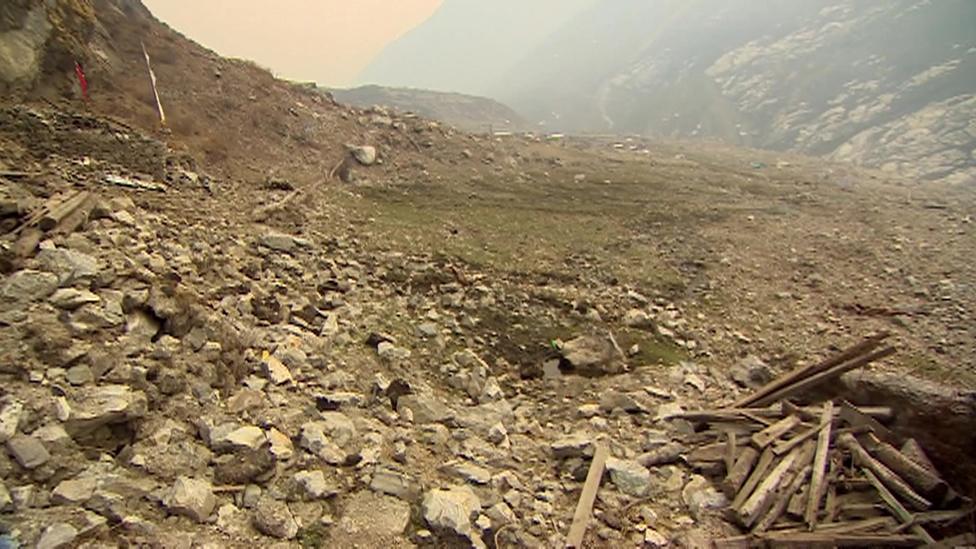
Now there is little more than rocks

Find out more
From Our Own Correspondent has insight and analysis from BBC journalists, correspondents and writers from around the world
Listen on iPlayer, get the podcast or listen on the BBC World Service or on Radio 4 on Saturdays at 11:30

My eyes were drawn to the wreckage of the buildings standing on a small hill, not to the great plume of debris fanning out into the valley.
But that was where the busy little tourist town had been.
The earthquake had triggered an avalanche and a landslide which had buried the entire place under who knows how many hundreds of thousands of tonnes of rocks and boulders, and snow and ice.
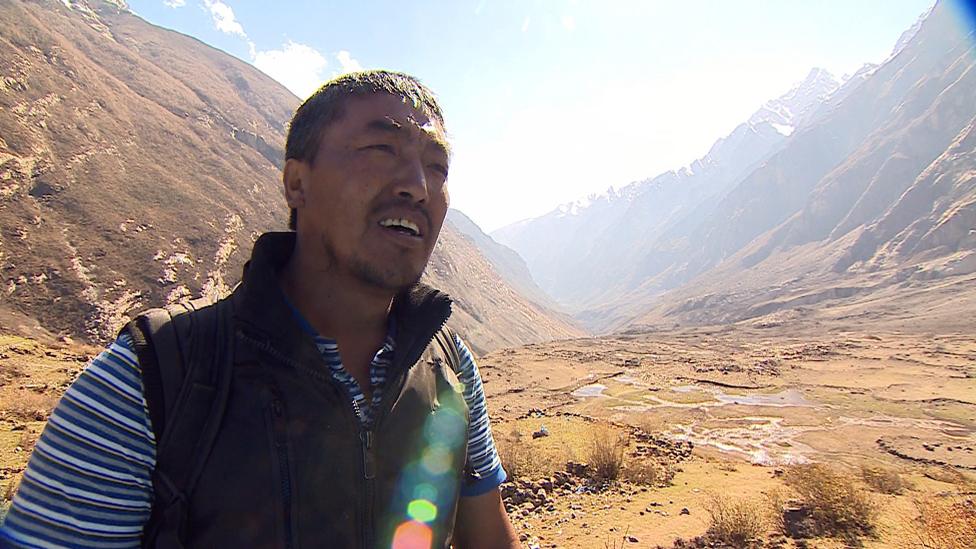
"We have lost everything," Dendup Lama said in 2015
The locals here are ethnically Tibetan. They're tough mountain people but as we hiked down from where the helicopter had dropped us, everyone I spoke to burst into tears.
"We have lost everything," Dendup Lama told me, his eyes red raw. "Everyone has lost family here."
Just one house remained, sheltered under a great shoulder of rock.
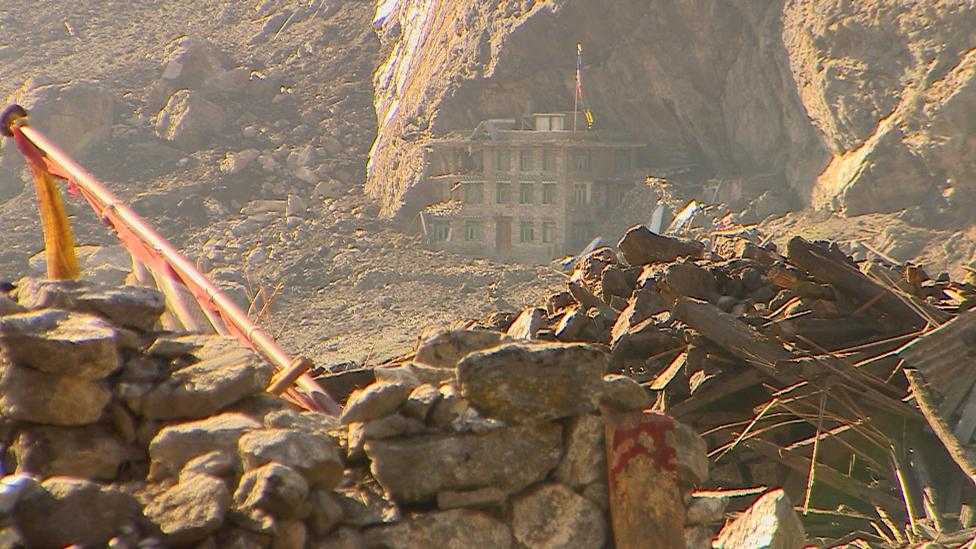
On a field beside the debris, 52 bodies had been laid out side-by-side.
As we watched they brought out another one. A tourist. A young woman. Her hair hung limply down from the stretcher. There was something so intimate and so appalling about the sight that I, too, broke down in tears.
We now know that at least 215 people died here, among them dozens of foreign tourists.
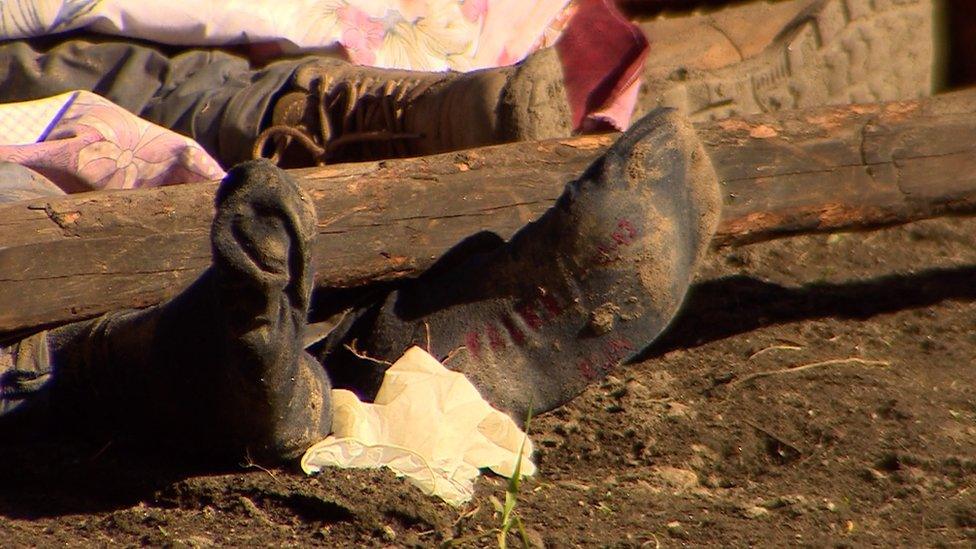
A year on and Dendup Lama met me from the helicopter. We hugged. He was all smiles and warm welcomes.
He showed us the guesthouse he's built in the village at the top of the valley. Most of the survivors have moved up here too.
Many are still living in temporary accommodation - flimsy huts made of corrugated iron - but as we sipped hot tea in the cold mountain air, I could hear the sound of sawing and hammering all around me.
This is a community trying to rebuild itself.
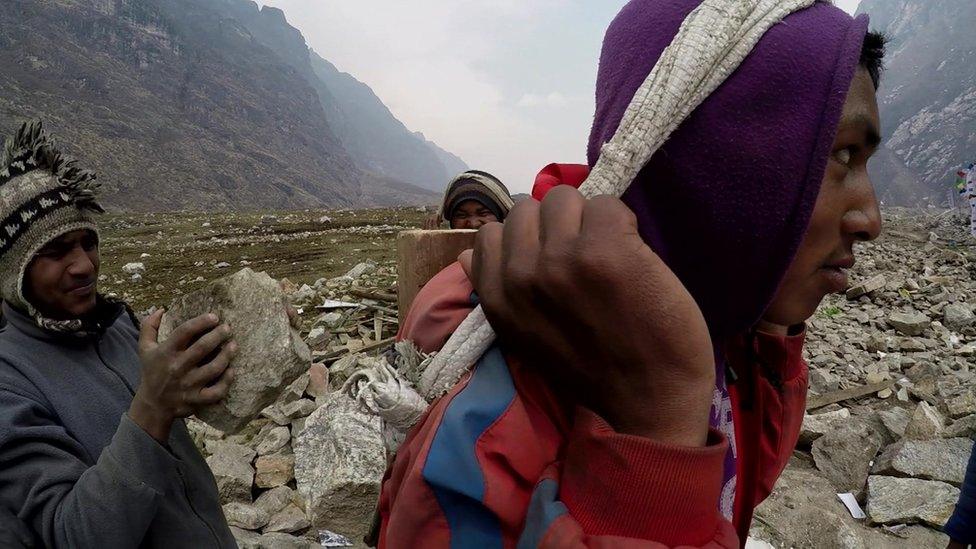
The next morning we joined the survivors as they went back to the site of Langtang village.
According to the Tibetan calendar it was the anniversary of the catastrophe and what is left of the community was gathering to do puja - prayers - for the dead.
But as they prayed with their spiritual leader, it became clear just how close to the surface the tragedy still is.
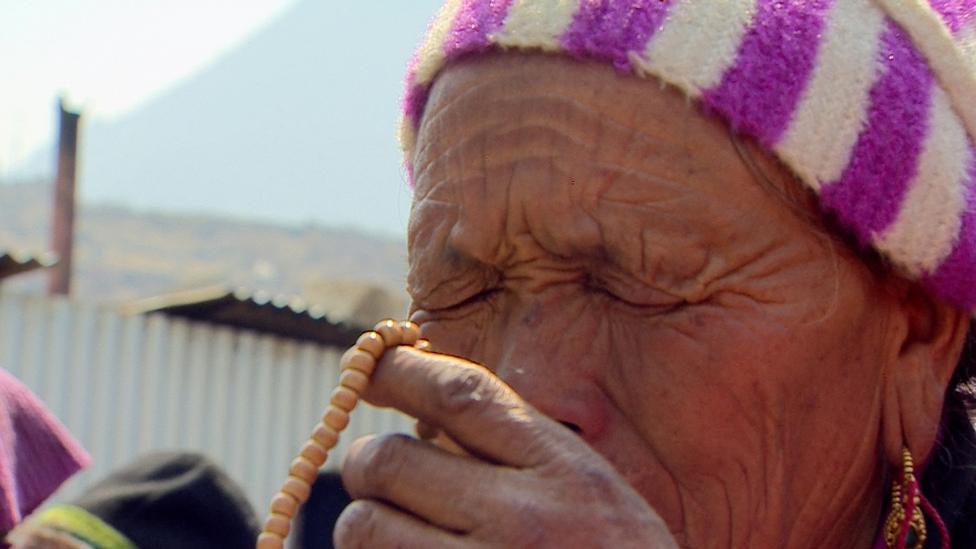

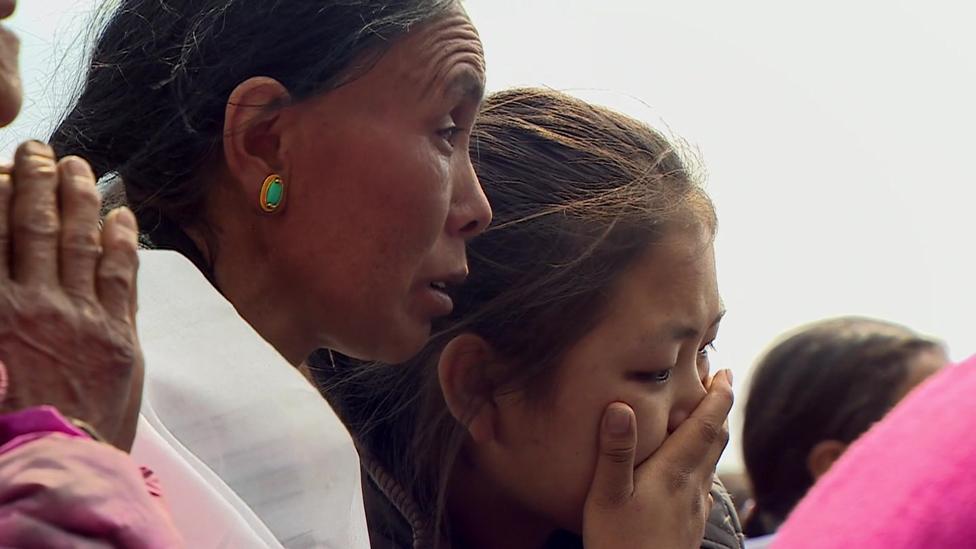
Dendup led me down to where the snow and ice had melted away like a tide, revealing the wreckage of a few of the buildings.
He showed me where he had dug his mother's body from the ruins of the guesthouse she had run.
He turned his face away from me - silent for a moment.
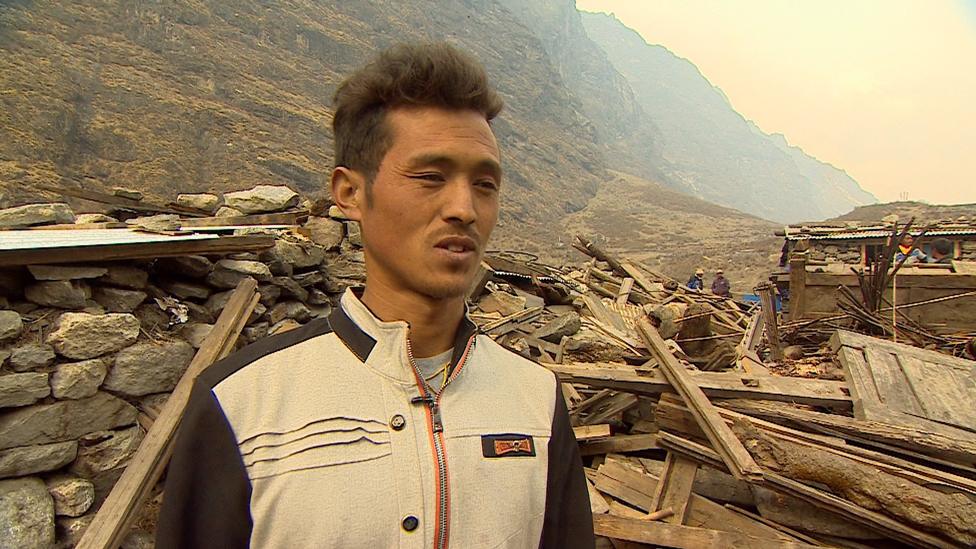
Tashi left his family to go and load up his horse - he never saw them again
Another man told me how he and his wife had been planning to move to the village at the top of the valley.
He had left her and his daughter having tea with his mother-in-law while he went to load up the horse.
Fifteen minutes later the earthquake hit. They were all killed.
"Just 15 minutes, that is all," he said, his eyes still hollow with grief.
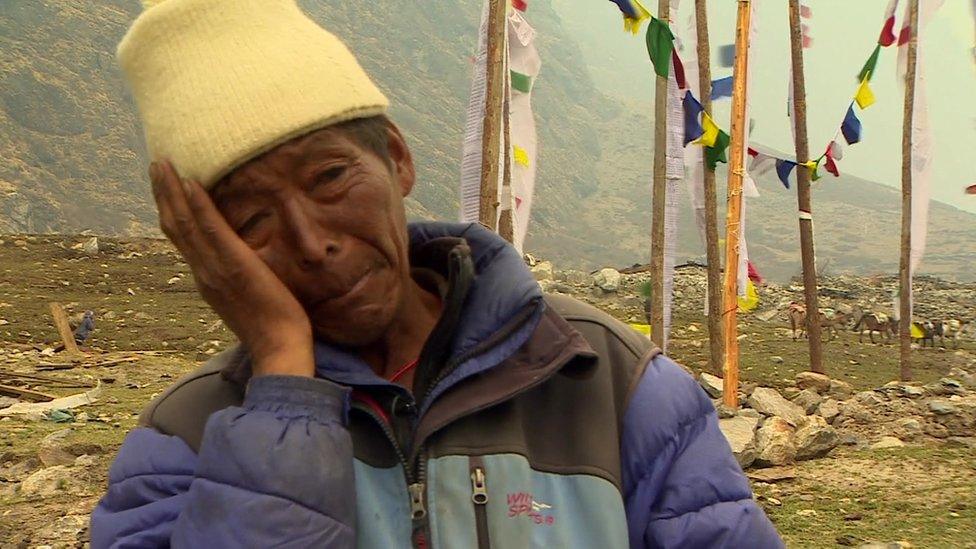
Dawa Sherpa has been unable to sleep since he lost his family
Dawa Sherpa lost his wife, his son and his grandson. Now there is only me, he said.
"Whenever I close my eyes their memories come and haunt me. I haven't slept for a year." Tears ran down his face.
As we left the valley I asked the helicopter pilot to take us up into the mountains above the town. The chopper flew close the great rocky walls of the mountain valley, riding the updrafts.
The scale of what had happened was all too apparent here. Now I could see that the whole side of a glacier had sheared off and crashed down into the valley bellow, sweeping with it the rocks and debris. A team of geologists estimated the force of the impact was equivalent to half that of the atomic bomb that destroyed Hiroshima.
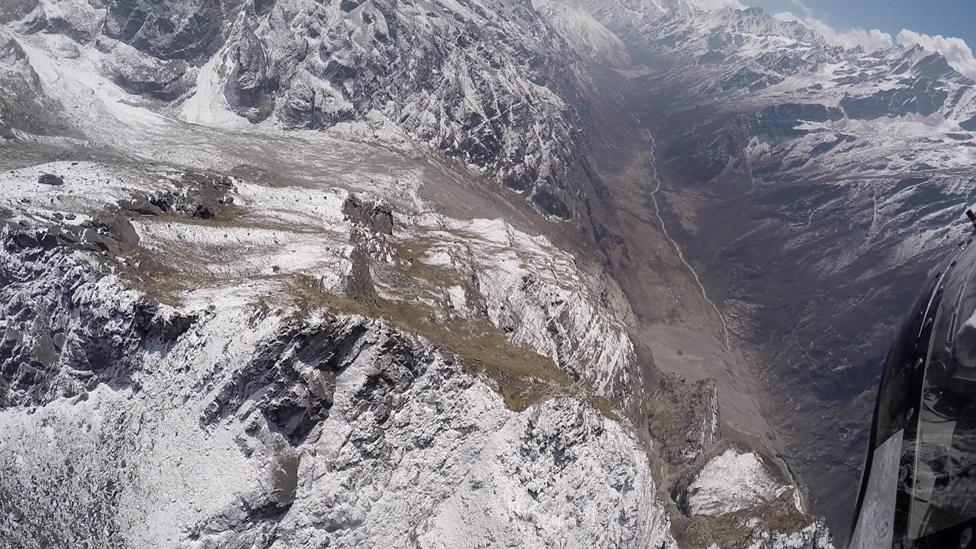
As we flew back to Kathmandu we passed the wreckage of a monastery. A forest of white prayer flags fluttered in the wind, one for every villager who had died.
Many of us have experienced the misery of the loss of a loved one. But fortunately, few of us will ever experience the trauma of loss on this scale.
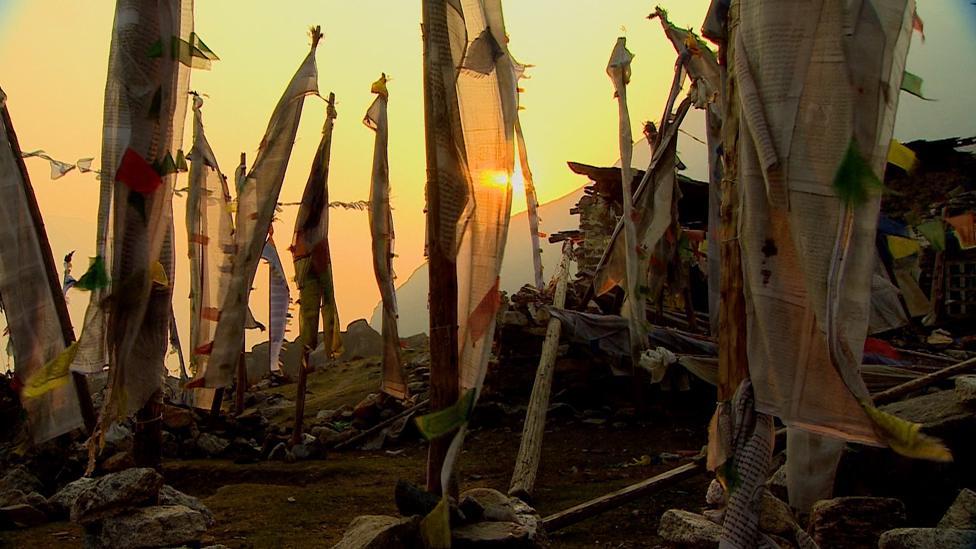
Subscribe to the BBC News Magazine's email newsletter to get articles sent to your inbox.
- Published6 May 2015